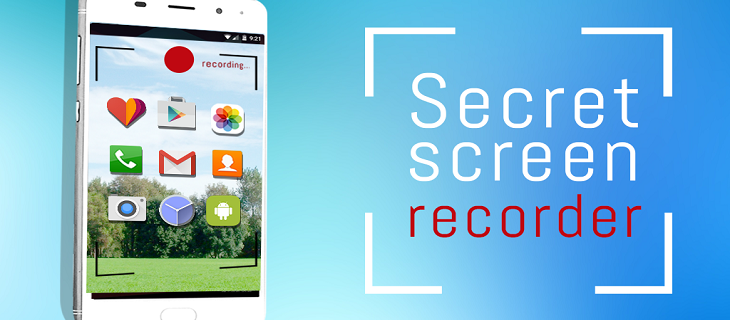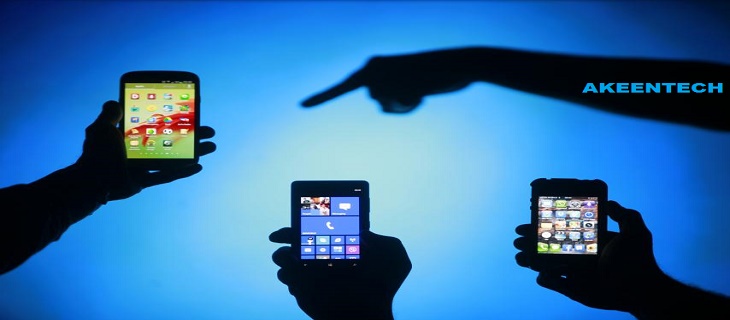Smartphones have turned out to be ubiquitous, prompting a torrent of ways the smartphone violates your privacy. While you can install privacy focused applications to improve the situation, we should be real: by using a smartphone, you give up practically all privacy.
How about we see:
The major ways the smartphone violates your privacy.
#1. Photo Location Metadata
Did you realize that by default, each photo you take on Android smartphone and iOS has location information that’s embedded inside it? This means that every single photo you take with your smartphone has the potential to reveal your Online Photos and Personal Privacy:
You love sharing your best photos online, however how much are you truly revealing to the world? You could be sharing more than you might think with strangers
Developer Felix Krause created a proof-of-concept application that showed how unsafe this is. Any app that you allow/allow to access your photos or images can collect locations from them. With this, they can tell where you begin and end trips, where you work, and many more.
Geotagging photo is useful for recollecting where you took them, however we’d say the drawbacks exceed the benefits.
To disable this tagging on Android phone, open the Camera app. Click the three dots Menu button then choose Settings. Then disable the Save location options here.
For iOS, navigate to Settings > Privacy > Location Services. Choose Camera from the list and select Never to disable the location tagging.
#2. Secret Screen Recording

It’s a general fear that applications are using your smartphone’s microphone to record all that you say. Be that as it may, shouldn’t something be said about apps recording what’s on your screen?
Unfortunately, this mobile equivalent to that of keylogging is a reality.
In mid-2018 this year, Alphr reported that security researchers found out that numerous Android phone apps were sending videos and screenshots of users’ screens to third parties. On iOS, ZDNet talked about researchers who found code in the Uber application that enabled it to record people’s screens.
You can imagine the kind of damage this could cause. A Lot of information appears on your phone’s screen each day that you would rather not share with others. Embarrassing web searches, indecent photos Private text conversations, passwords , and the like could all be out in the open.
Read Also:
- Proven ways to hack wifi password
- Long Lasting Battery? Things To Avoid While Charging
- How to fix USB device not recognized Error
- How to unroot your android gadget 2019
- Send Unlimited Free SMS To Any Network
- 10 ways to protect your social media account from hackers
#3. App Permissions
iOS and Android phone permissions can be abused in different ways. Try not to give your phone a chance to leak your data to advertisers. Here is how you can take control of application permissions. Whenever apps need to use sensitive information for instance your microphone or location, you have to grant permission first.
Both iOS and Android enable you to toggle individual permissions/consents, which is very great. However since apps can have access to that information for anything once you allow it, there is no telling what privacy violations applications commit.
You may let an app use your phone microphone to record voice messages, however it is secretly listening to the TV shows you are watching to enable advertisers build a profile around you. Or then again applications with access to your contacts could upload or transfer them to spam lists.
It is very wise to read a company’s privacy policy before installing its app; however that’s not feasible always. Apps are fantastic, however giving free apps total access to your personal info without checking their purpose is one of the major ways the smartphone violates your privacy.
#4. Browser Tracking
Your cellphone is not immune to the unavoidable tracking that happens everywhere throughout the web. Whenever you visit sites, they gather information about your location
The convenience of location tracking comes at a precarious cost: your safety and privacy, operating system, browser and the like. Social media buttons and Tracking beacons keep an eye on you and watch out for you, regardless of where you go.
Furthermore, that does exclude what your browser itself tracks. Since Chrome is from Google, it utilizes your browsing info to build a superior advertising profile. Furthermore, some of most well known Android applications (that you shouldn’t install).
These Android applications are greatly popular; however they likewise trade off your privacy and security. In the event that you have them installed, you might need to uninstall.
![]()
#5. Sensors in Your Phone
Your telephone contains a huge amount of sensors that measure physical data about the device. These include:
- The accelerometer: This can gauge where your telephone is pointing, how quick you’re moving, and your steps for fitness applications.
- Gyroscope: This tracks little motions. This is essential for panoramic photos and for few games.
- A magnetometer: This tells your telephone which way is north when using compass apps or map.
- GPS: This clearly gives your phone a chance to figure out of where you are on the planet.
- Other small sensors: similar to the proximity sensor to detect when your telephone is by your ear, or the surrounding light sensor for auto-brightness.
A variety of applications (and your gadget’s OS) can access these sensors for different purposes. As said above with permissions, there’s no telling which applications log this data and use it against you. Utilizing the accelerometer, applications can tell how regularly your telephone sits still, or when you have it in your pocket.
It’s not only the information on your telephone that is up for grabs; it’s physical info about the telephone itself.
#6. Free Public Wi-Fi Networks
Open and free Wi-Fi networks are available all over. While they’re positively helpful, you may love using open and free Wi-Fi – however so do hackers.
You can shield yourself from a some of these by using a VPN, however they’re in many cases blocked on these networks. In the event that you use the Wi-Fi in any case since you don’t have a choice, you’re opening yourself up to privacy leaks.
Since the business you’re in set up the Wi-Fi network, its control and responsible for it. This implies it could track each site you go on, build a profile on you, inject new advertisements, and many more. You put a ton of trust in companies when you connect your gadget to their Wi-Fi—there’s no telling what information they gather.

#7. Mobile Service Provider Tracking
We’ve discussed the ways the smartphone violates your privacy from your OS and apps, however do not forget about your wireless network service provider, either. Companies like Verizon, MTN, Airtel and AT&T can learn information about you in light of how you use their services.
For instance, which cell towers you associate with can reveal where you frequently go or where you are. Like your home ISP, your mobile service provider likewise has access to your internet browsing through its mobile data.
Much more terrible, in 2016, Verizon was hit with a noteworthy fine for tracking clients with supercookies. Verizon has been fined for tracking clients with an unique identifier header (UIDH), otherwise called a “supercookie.
It’s one issue when free services infringe your privacy, but shouldn’t something be said about the service you’re paying a lot of money for?
Smartphones Are a Privacy Nightmare
We are not intending to whip you into a frenzy. Quite a bit of this tracking is done secretly, and is a part of using present day gadgets. Be that as it may, staying aware of what your telephone can do is very wise. You should know what information apps, the OS, sites, and your service provider are collecting and what they do with the information.
Thanks for reading and I hope you enjoy the post. In case you do have any contribution on the topic “ways the smartphone violates your privacy” feel free to let us know in the comment box.

Ways Your Smartphone Is Violating Your Privacy — Nairaland - Naijaray Headlines
August 4, 2018[…] https://akeentech.com/ways-the-smartphone-violates-your-privacy/ Did you find apk for android? You can find new Free Android Games and […]